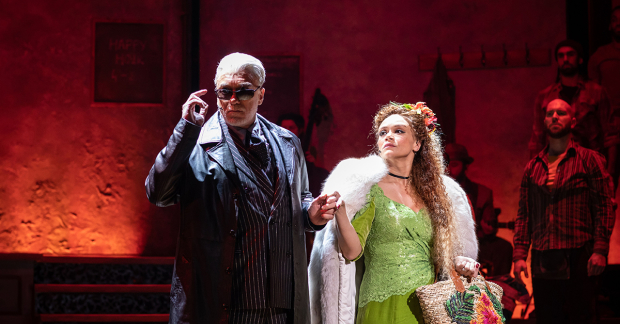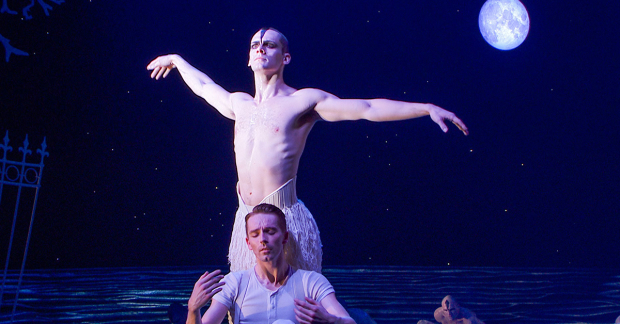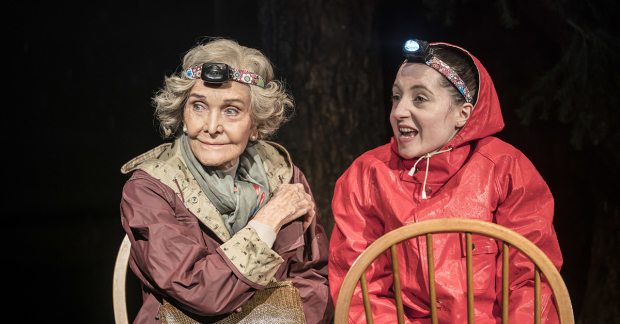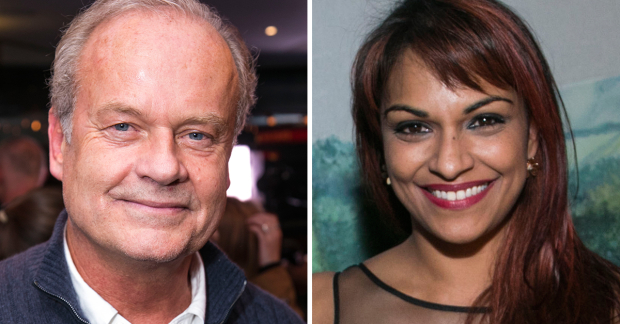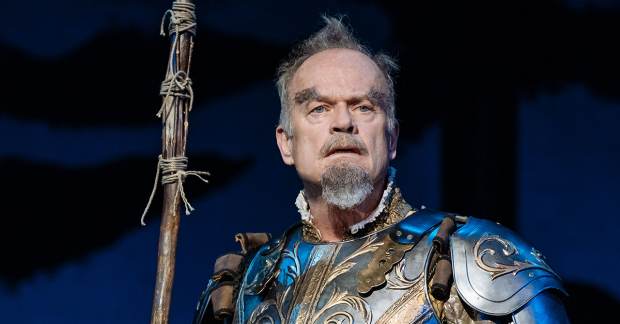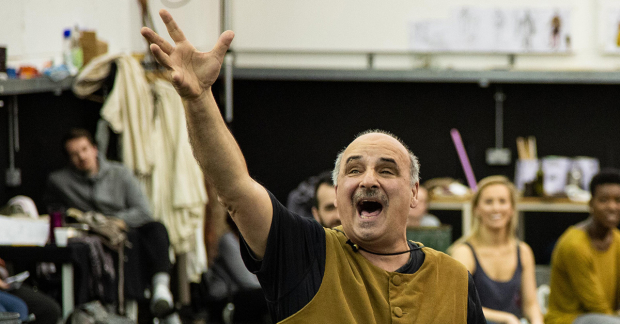Review: Man of La Mancha (London Coliseum)
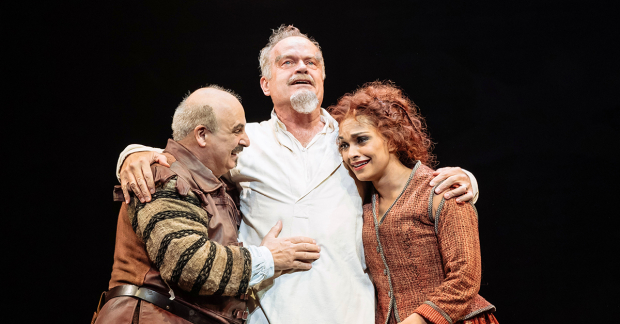
© Manuel Harlan
There are a group of enthusiasts, of a certain age, who will make the case that Man of La Mancha is the great lost musical of the 1960s. It did after all win the Tony Award for best musical in 1965, beating Sweet Charity and Mame. But on the basis of this revival, as part of Michael Grade and Michael Linnit's determination to produce rarely staged classics at the Coliseum, that claim is as delusional as its hero Don Quixote.
It's the most peculiar show, with one great anthemic song – "The Impossible Dream" – and a very odd book by Dale Wasserman which puts the author Miguel de Cervantes into prison awaiting questioning by the Spanish Inquisition and then makes him enact the story of Alonso Quijano, an elderly nobleman, who has lost his grip on reality and believes he is the chivalric knight Don Quixote, who rushes around tilting at windmills.
This double framing is made even odder by director Lonny Price's decision to dress the prisoners in contemporary clothes, and suggest they are in the grip of a dictatorship in modern times, and imprisoned in a ruined museum (set design James Noone) which conveniently has a circular acting space in the middle.
Then to make everything even more surreal, Kelsey Grammer, beloved as Frasier, has been cast as the three-way hero. Grammer has an attractive, amiable presence but what he does not have is a singing voice strong enough to ripple through the great number of the night. The tone is there, but he just doesn't have the breath to fill a huge space like the Coliseum. Even that might have been OK, if he could have endowed the role with his legendary comic timing but instead his largely static performance (he seems to have some difficulty moving) vacillates between vaguely witty and warmly bumbling.
Nor has the production made any great attempt to rethink the musical's problems. Its one political point – when Cervantes asks a Muslim "prisoner" to play a Catholic priest – seems ill-judged. And it shows no sense of the difficulty of the character of Aldonza, a typical serving wench of the kind of who crops up a lot in the musicals of the 1960s. She is all pragmatic prostitution ("One pair of arms is like another") and fiery spirit, until – inspired by Quixote's belief in her as the ideal Dulcinea – she is beaten up and raped in an extended dance sequence. This kind of thing just won't wash today and it is made all the more upsetting by the fact that the opera singer Danielle de Niese (sharing the part with Cassidy Janson) endows the character with so much life, her fantastic singing invigorating the stage.
Its supporters might argue that the musical's theme, that imagination and idealism are important virtues in a world where such horrors are part of everyday reality, is as relevant today as it ever was. Certainly, the priest's belief that everybody needs a Dulcinea, that a dream is a salvation as well as an illusion, is an interesting one, performed powerfully by Minal Patel. But Don Quixote too often (when dealing with a band of colourful gypsies – another '60s trope – for example) just comes over as a fool. The poet WH Auden was the original lyricist (until he was replaced by Joe Darion's safer pair of hands) and I kept wondering what he might have made of the theme.
As it is, the pleasures here are all round the edges. The score by Mitch Leigh is terrific, all brass and guitars and Spanish inflections, and is played with tremendous oomph by the ENO orchestra conducted by David White. Peter Polycarpou is an attractive Sancho Panza, and Nicholas Lyndhurst gets a lot of comic mileage out of a drunken innkeeper. The ensemble are lively and willing. But it's not enough. Man of La Mancha hasn't been performed professionally in London since 1968. It can now return to the museum.



